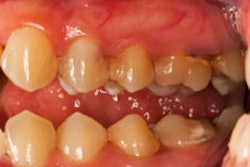The human papillomavirus (HPV) triples the risk of people developing esophageal squamous cell carcinoma, according to research led by researchers from the University of New South Wales (PLOS One, July 24, 2013).
In addition to causing cervical, anal, and genital cancers, HPV has more recently been linked to oral and head and neck cancers.
"One of the main issues is this form of esophageal cancer is usually diagnosed quite late and so has a very high mortality," said lead author Surabhi Liyanage, a postdoctoral candidate with the School of Public Health and Community Medicine at the university.
For this study, she and her colleagues analyzed 21 case control studies that investigated oral squamous cell carcinoma tissue (OSCC) for the presence of HPV DNA. A total of 1,223 cases and 1,415 controls met the inclusion criteria.
From all OSCC specimens included in this meta-analysis, 35% tested positive for HPV DNA, the researchers found.
"Uncertainty around the etiological role of HPV in OSCC is due largely to the small number and scale of appropriately designed studies," the study authors wrote. "Our meta-analysis of these studies suggests that HPV increases the risk of OSCC threefold [and] provides the strongest evidence to date of an HPV-OSCC association."
The findings could have implications for vaccination programs around the world, the researchers noted. Given that the most common two cervical cancer-causing HPVs are now preventable by early vaccination, this may be significant in countries where this cancer is frequently found, they added.



















